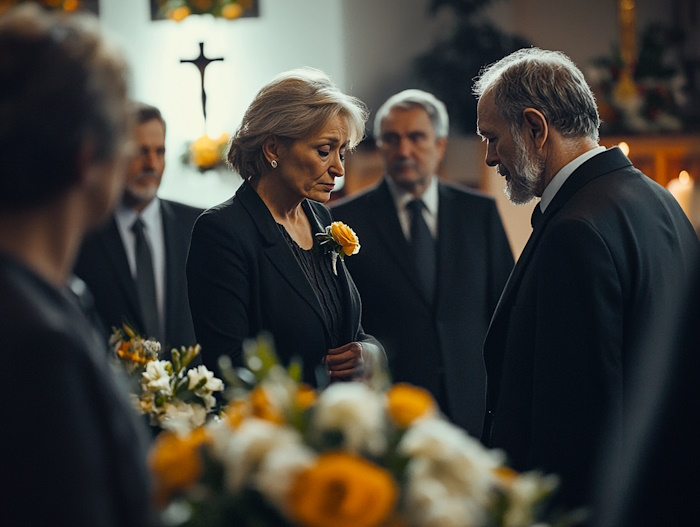Going to a funeral is a sensitive issue, and one has to be very considerate and polite. The following is a guide on how to talk at a funeral, what to do, and what to wear to extend your condolences to the family in the right way.
What to Say
At times, finding the right words can be a challenge, but the most sincere approach is to be honest and understanding. Here are some phrases that can convey your heartfelt condolences:
Express Sympathy:
- “I’m so sorry for your loss.”
- “My thoughts are with you and your family during this difficult time.”
- “Please let me know if there’s anything I can do to help.”
Share a Memory (If Appropriate):
- “I’ll always remember [deceased’s name] for their kindness and warmth.”
- “One of my favourite memories of [deceased’s name] is…”
Offer Support:
- “I’m here for you.”
- “If you ever need someone to talk to, I’m just a call away.”
What not to say to the sick:
- “I know how you feel.” (It is a personal type of sorrow, and every person has his or her own way of coping with it.)
- “At least they lived a long life.” (This can reduce the importance of the loss to some extent.)
“Everything happens for a reason.” (Not everybody can find consolation in this statement.)
What to Do
- Arrive on Time: On-time arrival is a way of paying respect to the deceased and the bereaved family.
- Offer Condolences Quietly: If speaking to family, make it short and polite.
- Sign the Guestbook: This is proof of attendance so the family knows who was there.
- Obey Cultural or Religious Rules: If you are not sure what to do, then look at other people and do the same as they are doing.
- Silence Your Phone: Switch off your phone or turn it on silently during the service before it starts.
- Be Respectful and Reserved: Funerals are ceremonies that are held to mourn the dead. Hence, one should not joke or raise one’s voice.
- Participate as Appropriate: If there are prayers, readings, or silence, then follow along appropriately.
Offer Help: If you are friends with the family, you may want to help with meals, looking after children or any other daily activities in the next few days.
What to Wear
This paper will focus on the appropriate dress code as a form of respect for the deceased and their family.
Traditional Attire:
- Men: A dark suit, dress shirt and a tie (black, navy or gray colours are encouraged).
- Women: A modest black or dark colour dress, skirt or pantsuit.
- Children: They should also be dressed in neutral colours and have formal clothes.
Avoid:
- If you want to avoid them, don’t wear bright or flashy colours (some cultures celebrate life and not death in black).
- Casual clothing like jeans, sneakers, or T-shirts, if it is not allowed to wear something formal.
- Strong perfume or cologne because people will be sensitive to any kind of scent.
This article will ensure that you give the right respect and support to those who are mourning. When you are ever in doubt about what to do during a funeral, it is always safe to assume a formal and decent attitude.



